Five Things: 9/11, Thinking Historically, Reverse Migration, Republican Fashion, Stew
It's Sunday. Read this now.
Hello and welcome back to Five Things!
I spent last week traveling a bit and went to Düsseldorf on Tuesday morning to give a talk at a Handelsblatt Conference on Agentic AI and how this is changing the way we work and the way business models will look like in the future. Then I hopped on a plane to be at a party in Berlin the same evening. Nope, I normally don’t do this kind of stunt, but this time it made sense to me. The yearly so called “Hamburgfest” took place in Berlin and 2500 people mingled in and around the so called Hamburg State Representation, which is essentially Hamburg’s embassy in Berlin. I met so many people from Hamburg and Berlin, it was quite a bit overwhelming and I had so many great conversations. Also, it was very nice that many companies from Hamburg showcased their food and beverage selections…
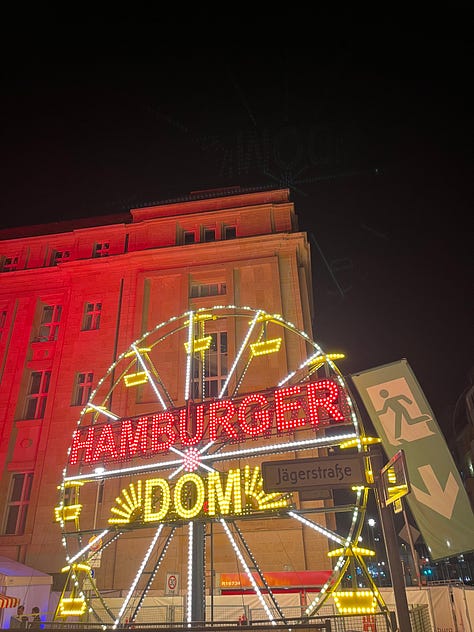

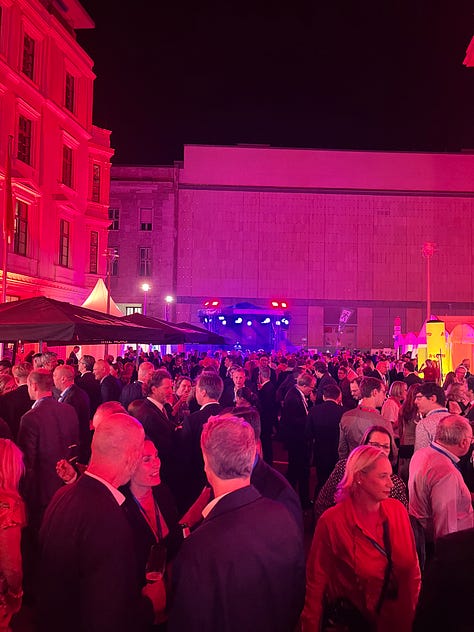
The next day my voice sounded a bit like Joe Cocker’s. I had a bunch of meetings in Berlin on Wednesday and then went to a reception at the Federal Foreign Office. My friend Metin Hakverdi (MdB), who is the transatlantic coordinator of the German government, invited me to his inaugural event in Berlin where he outlined his understanding of fostering transatlantic relations.
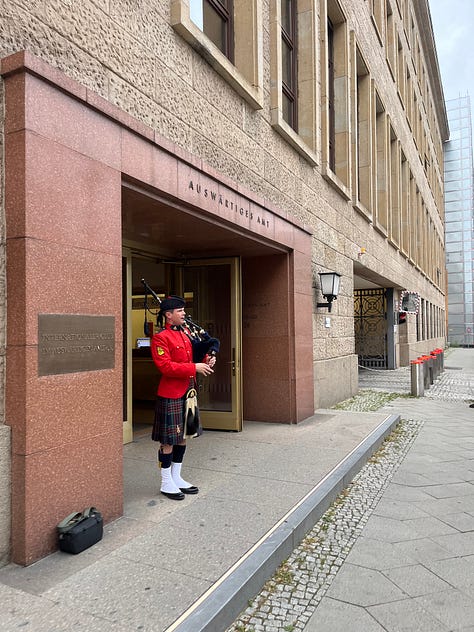
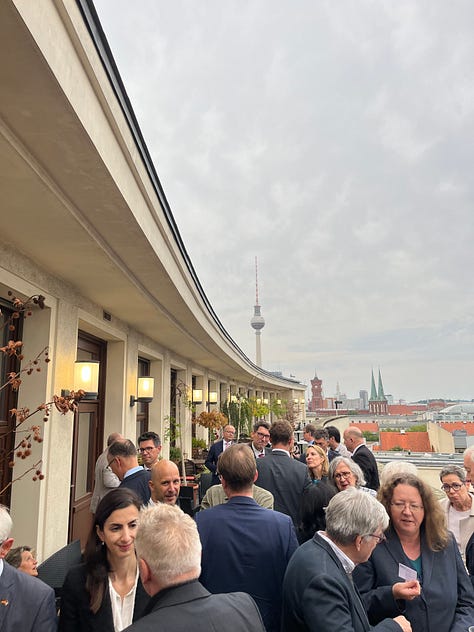

I did do some reading on the train and here’s my selection for you this Sunday!
Drop everything and read these Five Things now!
The Real Heroes Are Dead
Susan called him at eight-fifteen, as usual, and he was at his desk. They laughed about his morning song-and-dance routine. “I don’t need the movies or the theatre, because I have you,” Susan told him.
A half hour later, she was on the phone with one of her daughters when she got another call. She put her daughter on hold; it was another daughter, calling from Manhattan. “Put on the TV!” she yelled. Susan rushed to the set and she saw smoke pouring from the north tower.
I still remember 9/11 vividly, how I got the phone call from my wife, how we gathered around a TV in the office, how everything went silent, how I tried reaching my American uncle who worked on Wall Street and how my wife and I relayed that he was fine and walking back home to Staten Island to our family who couldn’t reach him while somehow international calls to his cell phone went through. What a scary and sad day.
The Lost Art Of Thinking Historically
What we have lost, and what we desperately need to reclaim, is a different mode of cognition, a historical sensibility. This is not about memorizing dates and facts. It is, as the historian Gordon S. Wood describes it, a “different consciousness,” a way of understanding that profoundly influences how we see the world. It is a temperament that is comfortable with uncertainty, sensitive to context and aware of the powerful, often unpredictable rhythms of the past. To cultivate this sensibility is to acquire the intellectual virtues of modesty, curiosity and empathy — an antidote to the hubris of rigid, monocausal thinking.
Also, it would be helpful if more people studied history and gained a better understanding of what happened when and why.
The Great Reverse Migration
According to the United Nations Human Rights Office of the High Commissioner, only 2,831 people crossed the Darién between January and March 2025, representing a 98 percent decrease compared with 2024. In March, Panama’s President José Raúl Mulino declared that the Darién Gap was effectively closed, proudly noting that his country’s migration crisis was over. Yet that statement overlooks a new, invisible crisis slowly forming in plain sight, miles away from the Darién. Migrants are still risking their lives; they are simply doing it on their way south, not north.
This is so absurd. We have to remember that behind those numbers there are people with hopes and dreams, who just want a better life for themselves and their families.
How Did Republican Fashion Go From Blazers to Belligerence?
Although blazers were initially worn for sport (the term comes from the red jackets worn by members of the Lady Margaret Boat Club at St John’s College in Cambridge, which visually “blazed” along the water), by the early 1980s, they symbolized belonging in polite society. Blazers allowed one entry into country clubs and Ivy League alumni houses, where paintings of 19th-century men hanging above mahogany wainscoting enshrined success according to particular moral and professional codes. For many conservatives, such environments represented civility and decorum.
Four decades later, that uniform has all but vanished. The shift isn’t unique to Republicans—men’s fashion writ large has grown increasingly informal. But within the GOP, that broader trend reflects a reordering of power.
Derek Guy, who is one of the best authors on menswear right now, is spot on.
Stew Kids on the Block
Recently the algorithm has been serving me social media personalities sipping and swirling perpetual stews, viral on TikTok and Reels, because the algorithm can read my memories and my subconscious. It knows what I long for.
And I dream about soups full of bones gurgling in the dark.
Most of the reels on Insta are about food and as fall approaches, I appreciate stew recipes.
That’s it. Have a great Sunday! If you missed last Sunday’s edition of Five Things, have a look here:
— Nico



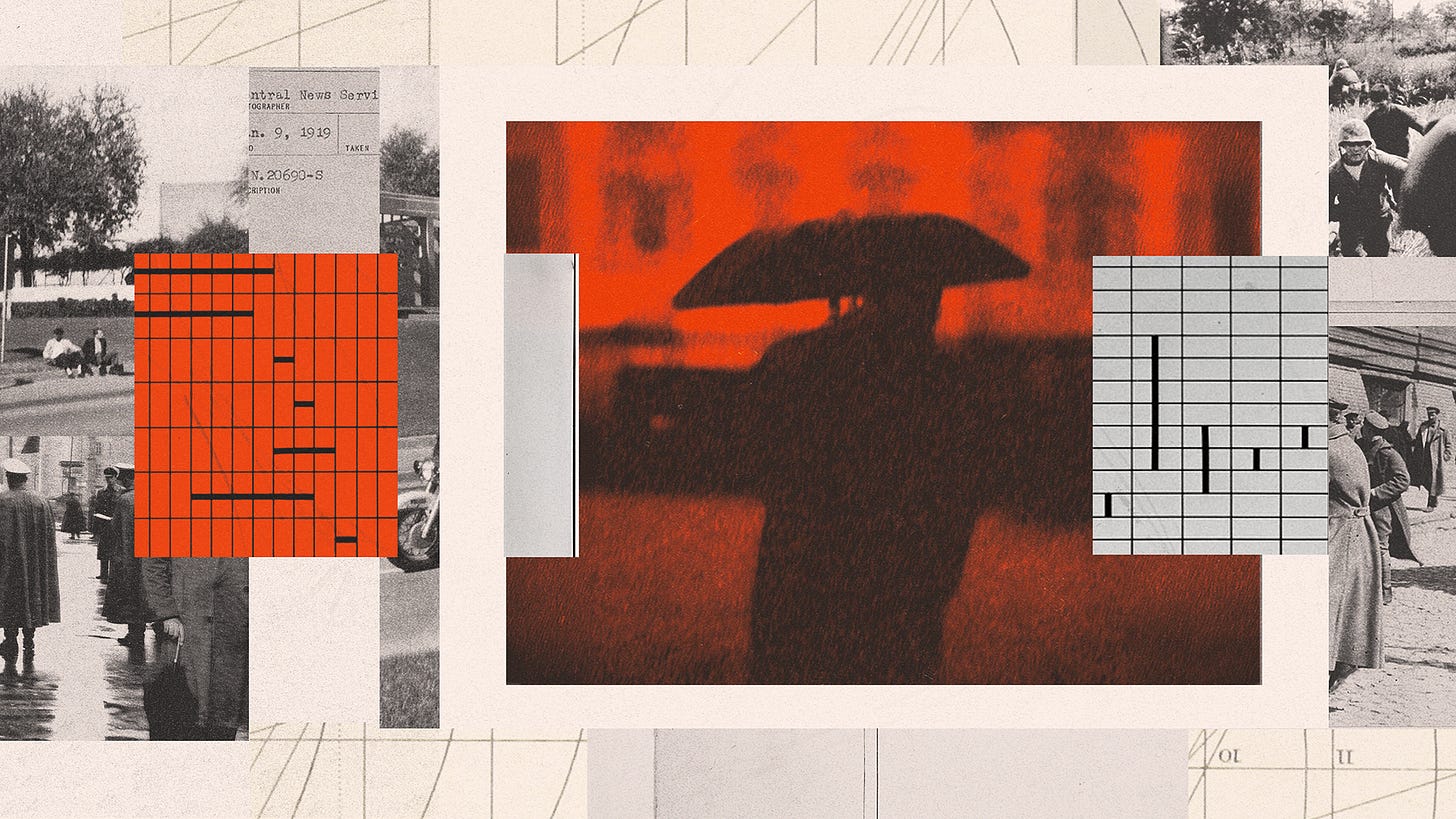




I'll admit, I had to look up agentic AI. Old person syndrome.